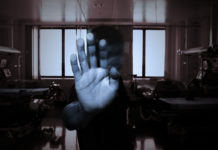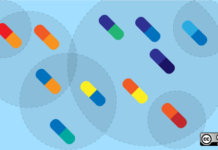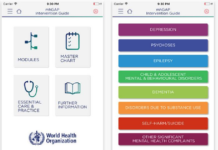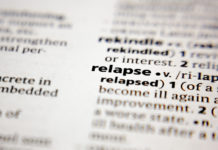What It’s Like to Be Involuntarily Committed
Ten years after being fired for taking a mental health leave after the Virginia Tech massacre, I was diagnosed as "schizophrenic" and involuntarily committed to a hospital. Now I have a job and a life, but I'm still forced to take drugs and report to a social worker.
Hearing Veteran Narratives is Key to Suicide Prevention
Current suicide assessment practices of the VA are reductive and do not allow for the individual’s narrative to be heard.
Can a Conceptual Competence Curriculum Bring Humility to Psychiatry?
Training for conceptual competence in psychiatry provides a new way forward to address theoretical and philosophical issues in mental health research and practice.
School Discipline is Racially Biased and Increases Misbehavior
School discipline that punishes minor misbehavior may increase adolescents’ misconduct and lead to racial inequalities in school discipline.
Transgender Children Development Consistent with Current Gender, Not Sex Assigned at Birth
Transgender children show strong identification and preferences stereotypically associated with their current gender identities, not their sex assigned at birth.
Researchers: Antidepressant Withdrawal, Not “Discontinuation Syndrome”
Researchers suggest that the pharmaceutical industry had a vested interest in using the term “discontinuation” in order to hide the severity of physical dependence and withdrawal reactions many people experience from antidepressants.
Case Study of Liberation Approach to International Mental Health Care
Study in Brazil demonstrates how the exploration of contextual determinants of distress in mental health care can inform therapeutic change.
Committed at 16: Memories of a State Hospital
While most of the sting is gone, even now — almost sixty years on — I can’t get through a single day without thinking about shock treatment and the state hospital. I regularly have dreams or nightmares about being lost in a strange place and someone making me feel like dirt.
To Live and (Almost) Die in L.A.: A Survivor’s Tale
After 25 years of chronic emergency, 22 mental hospitalizations, a stint at a “community mental health center,” 13 years in a "board & care," repeated withdrawals from addictions to legal drugs, and a 12-year marriage, I plan to live every last breath out as a survivor, an advocate, and an artist.
Mental Health Professionals and Patients Often Disagree on Causes of Symptoms
A new study finds that clinicians’ disregard for mental health patients’ insight into their own condition may be detrimental to treatment.
The Day I Became Schizophrenic
Schizophrenia, to me, is nothing more than a word. All it really means is that you experience psychosis on a regular enough basis that it’s a factor in your life. And that you actually do, as the word “schizophrenia” indicates, have a mind that you share with some sort of outside presence.
The Real Myth of the Schizophrenogenic Mother
Acknowledging the role of trauma inflicted by a given individual’s mother is not the same as laying all blame for “mental illness” at the feet of motherhood. Meanwhile, a mountain of evidence has accumulated linking schizophrenia to sexual, physical, and emotional abuse and many other categories of adverse childhood experiences.
Experiences of Depression Connected to Declining Sense of Purpose
In-depth interviews find that those who screened positive for depression did not explain their experience in terms of diagnostic symptoms.
The Invisibles: Children in Foster Care
Millions of current and former foster children experience multiple kinds of trauma, as documented in a six-part investigative series published in the Kansas City Star this month. Too often invisible, these young people deserve our attention and our care.
Biogen Pushes FDA to Approve Failed Alzheimer’s Drug
A new analysis, published in Lancet Neurology, demonstrates how Biogen is spinning results from two failed trials for a new Alzheimer's drug.
Zel Dolinsky: I Have a Right to “Death With Dignity”
Researcher Zel Dolinsky once taught at medical school and worked as a medical writer in the pharmaceutical industry. In his last emails, he told of how the adverse effects of psychiatric drugs led him to choose to end his life.
How Western Psychiatry Harms Alternative Understandings of Mental Health
An anthropological look at the Global Mental Health (GMH) movement suggests several ethical problems and contradictions in its mission.
Does Facebook Use Improve Social Connections or Weaken Attention?
A network analysis of participants’ social media use and well-being reveals complex links with social capital but a minimal association with attentional control.
Initial Trial of Ayahuasca for Depression Shows Promising Results
Ayahuasca found to be effective in treating moderate to severe depression in low-income population.
How Pain is Treated Depends on Socioeconomic Status
A new international study reveals how healthcare providers treat patient’s pain may depend on that patient’s socioeconomic status.
Researchers Set the Record Straight on Controversial Zoloft Study
An issue of Lancet Psychiatry is devoted to clarifying the lack of efficacy for Zoloft (sertraline).
Ketamine for Harmful Drinking: A Look at the Data
New research contends that ketamine can reduce problematic alcohol use but does the data support the claims?
Pervasive Industry Influence in Healthcare Sector Harms Patients
Experts across the globe point to the harms of drug companies’ influence on research, practice, and education in healthcare noting that it compromises patient care.
Researchers Critique WHO Mental Health Technology
Researchers critically examine the underlying assumptions and implications of a new WHO mental health technology designed to streamline psychiatric assessment internationally.
What Does ‘Relapse’ Mean? Definitions Used in Antipsychotic Trials Are Unclear
Antipsychotic drugs are prescribed on the basis of trials that demonstrate a higher rate of ‘relapse’ in people who are withdrawn from these drugs compared to those who continue to take them. Yet, incredibly, there is no consensus about what ‘relapse’ means in this situation.

































